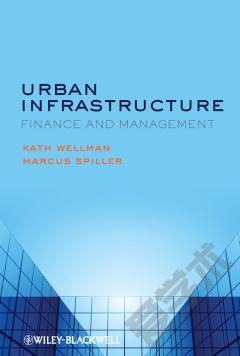Urban Infrastructure —— Finance and Management
----- 城市基础设施——财务与管理 第7版
The magnitude of investment, the long time-frames involved and the influence of pre-existing infrastructure on urban infrastructure provision make a co-ordinated approach to forward-planning, policy development and implementation essential. There are major challenges in making decisions on urban infrastructure and getting management structures and processes in place. Getting it right generates long-term dividends; getting it wrong involves major costs, often borne by taxpayers. Urban Infrastructure: finance and management is posited on a strong belief that the physical structure of cities and the efficiency of infrastructure services delivered are driven by efficiencies within individual infrastructure sectors, lessons learnt across these sectors and the ability to co-ordinate and integrate sectors to generate economies of scale. This necessitates an interdisciplinary approach, integrating knowledge from finance, governance, planning and management as well as the characteristics of the individual urban infrastructure sectors involved. Here it is not only about getting the initial decisions and policy settings right, but also ensuring effective implementation. A major theme running through the book is the nature of institutions and the governance structures responsible for delivery and management of urban infrastructure and the decision making processes involved. The editors have taken a deliberately pragmatic approach to the finance and management of urban infrastructure; chapters are cross-sectorial and present both theory and practice. This book is for students and practitioners in policy, planning, urban management, infrastructure finance and management.
{{comment.content}}








 京公网安备 11010802027623号
京公网安备 11010802027623号